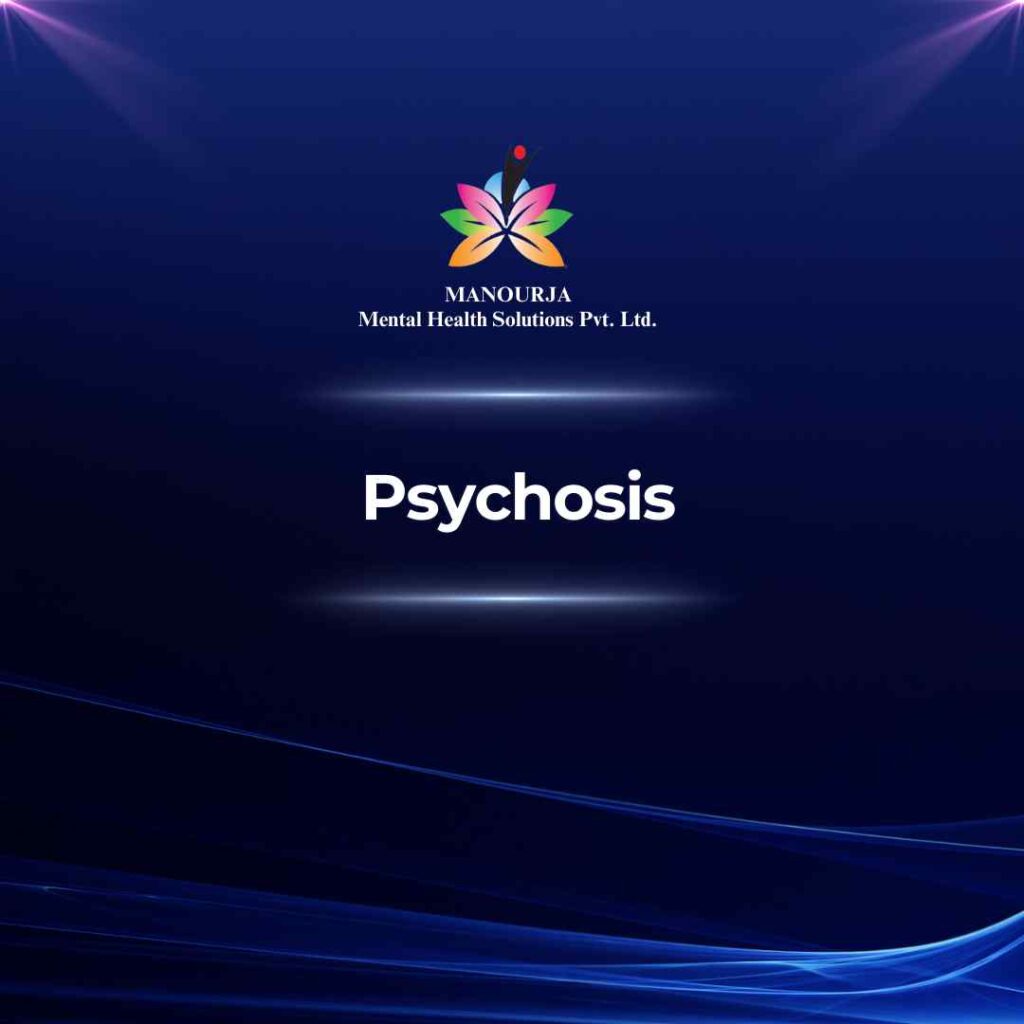Psychosis

“Psychosis” is a severe mental health condition characterized by a loss of contact with reality. Individuals experiencing psychosis may have impaired perceptions of reality, which can include hallucinations (seeing or hearing things that are not there) and delusions (strongly held false beliefs). Psychosis often interferes with a person’s ability to think clearly, manage emotions, and engage in daily activities.
Psychosis as a Sign and Symptom of Mental Illness
Psychosis is not a specific mental illness itself but rather a symptom that can occur in several mental health disorders. It represents a significant departure from normal functioning and can be a distressing and disabling experience for individuals affected.
Mental Illnesses with Psychosis as Symptoms
Psychosis can occur in the following mental health disorders:
- Schizophrenia: Schizophrenia is a chronic and severe mental disorder that can involve psychotic symptoms such as hallucinations (typically auditory), delusions (often persecutory or grandiose), disorganized thinking, and negative symptoms (e.g., reduced emotional expression or motivation).
- Schizoaffective Disorder: This disorder combines features of schizophrenia (psychotic symptoms) with mood disorder symptoms, such as depression or mania. Individuals may experience periods of psychosis alongside mood episodes.
- Bipolar Disorder: During severe manic episodes or depressive episodes with psychotic features, individuals with bipolar disorder may experience psychosis. This can include hallucinations, delusions, and disorganized thinking.
- Major Depressive Disorder (with Psychotic Features): In severe cases of depression, psychotic symptoms such as hallucinations (often auditory) or delusions (e.g., guilt or nihilism) may occur.
- Substance-Induced Psychotic Disorder: Psychosis can be induced by the use of substances such as hallucinogens, stimulants (e.g., amphetamines), or alcohol. This is typically reversible once the substance is cleared from the body.
- Brief Psychotic Disorder: This disorder involves the sudden onset of psychotic symptoms, such as hallucinations, delusions, or disorganized behavior, lasting for a brief period (less than a month) and often triggered by stressors or traumatic events.
Managing and Treating Psychosis
Treatment for psychosis typically involves a combination of medication, psychotherapy, and supportive interventions:
- Antipsychotic Medications: Medications such as antipsychotics are often prescribed to reduce psychotic symptoms by affecting neurotransmitters in the brain. These medications can help manage hallucinations, delusions, and disorganized thinking.
- Psychotherapy: Cognitive-behavioral therapy (CBT) and supportive therapy can help individuals understand and manage psychotic symptoms, improve coping skills, and address underlying issues.
- Hospitalization: In severe cases where safety is a concern or if individuals are unable to care for themselves, hospitalization may be necessary for stabilization and monitoring.
- Supportive Care: Providing support from mental health professionals, family members, and community resources can help individuals manage symptoms, adhere to treatment plans, and improve overall functioning.
Early intervention and ongoing treatment are crucial for managing psychosis effectively and reducing the impact on individuals’ lives. With appropriate support and treatment, many individuals with psychosis can experience significant improvement in symptoms and quality of life.
At MANOURJA, we believe in the transformative power of counseling. Our experienced therapists offer a safe and supportive space where you can explore your thoughts, emotions, and challenges. Through personalized counselling sessions, we’ll work together to develop coping strategies, build resilience, and achieve lasting positive change. Discover the path to a healthier, happier you with MANOURJA counselling services.
MANOURJA Rehabilitation Services
At MANOURJA, we’re dedicated to helping you in rebuild your life, after difficult times. Our rehabilitation services focus on understanding what you need to move forward, whether you’re recovering from addiction, trauma, or any psychological – social challenges. We create personalized plans, that are all about helping you, regain your strength and find hope again. With a caring team by your side, you’ll have the support to make real progress and take steps toward a brighter, healthier future.
